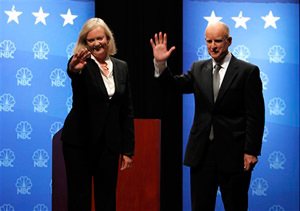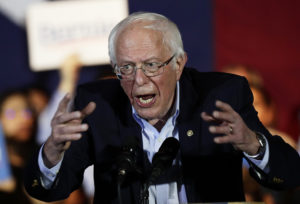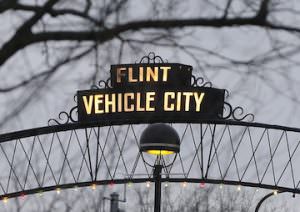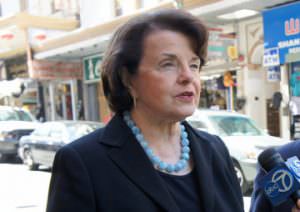Reclaiming the Golden State
At a discussion after the last debate between the two California candidates for governor, a man wondered whether his children would want to continue to live in the state where they grew up.
At a discussion after the last debate between the two California candidates for governor, a man wondered whether his children would want to continue to live in the state where they grew up. It was a terrific question, perfect for a state with a 12.4 percent unemployment rate and 21 percent of the nation’s home foreclosures.
The discussion was sponsored by the Huntington-USC Institute on California and the West and featured Joe Mathews and Mark Paul, authors of an excellent and relevant new book, “California Crackup: How Reform Broke the Golden State and How We Can Fix It.”
Mathews and Paul assured the questioner that California would be great for his children and that they, like most residents, would not be moving away.
The book, published by the University of California Press, is an antidote for today’s politics, where the rallying cry has become “Don’t let the perfect be the enemy of good.” Mathews and Paul reach for perfection, and although their ideas may not attain it, their effort is a good counterpoint to the current embrace of imperfection.
In the past, I may have been guilty of using this anti-perfectionism argument. But after observing the flaws of too many Obama administration compromises, I don’t think it’s much of a banner to march under, especially for a columnist on a crusading website.
The man in the audience was part of a substantial crowd Oct. 12 at the Huntington, a library, museum and botanical garden in San Marino, northeast of Los Angeles. After watching the big television screens showing the encounter between the gubernatorial candidates, Democrat Jerry Brown and Republican Meg Whitman, the audience and the authors dug deeply into the problems of California in a way the campaign has avoided.
California has two marquee contests this fall: Democratic Sen. Barbara Boxer against Carly Fiorina, the former Hewlett-Packard CEO, and the race between Brown, the state attorney general, and Whitman, who was CEO of eBay.
The Boxer-Fiorina race is crucial for President Barack Obama and his hopes for the Democrats to retain control of the Senate. It’s a straight-out contest between a veteran liberal incumbent Boxer, a strong Obama supporter, and a conservative business-regulation challenger who opposes the Obama agenda, including health reform, which she wants to repeal. Right now, the race is about even. If Fiorina beats Boxer, the Republicans will have taken a big step toward controlling the Senate.
Despite the importance of the Senate election, the winner of the contest for governor, where polls show Brown slightly ahead, will have much more power to shape policy in a state that continues to be a predictor of political, economic and social behavior—good, bad and indifferent—for the rest of the nation.
California’s population, the largest of the states, makes it so, as does its diverse demography, climate and geography. That, plus constant immigration, has made California an incubator of ideas and creative people — a pioneering public university system, Silicon Valley, highways, water systems, the modern aircraft industry as well as Jack Kerouac and the beat poets, Steve Jobs, Luis Valdez and his play “Zoot Suit,” George Lucas, novelist Walter Mosley and many more.
Neither of the candidates has shown the ability to restore California to its former status as an economic and social incubator.
And neither candidate, as Los Angeles Times columnist George Skelton noted, is especially likable. Whitman reminds me of the vice principal in charge of discipline at a high school or an executive in the human relations department of a giant, soulless corporation. Brown has an edgy arrogance and a know-it-all quality.
More important is the shallowness of their campaigns—fought like most electoral efforts this year with ads made by video propagandists, circulating on television, YouTube and Twitter. The candidates shield themselves from journalists, Whitman more so than Brown. Newspapers and political blogs have tracked the race pretty well, but television generally ignored it until two really simple stories emerged.
Whitman turned out to have an illegal immigrant housekeeper for nine years. When the housekeeper admitted her status, Whitman, rather than helping her get an immigration lawyer, fired her. As for Brown, an inadvertently taped conversation revealed one of his aides referring to Whitman as a “whore” in discussing how she promised to continue generous pension benefits for law enforcement officers when the Los Angeles police union endorsed her.
Although they both try to adopt the rhetoric of a bright California, they have the crimped vision of bean counters, hostile to taxes and government service. During his two terms as governor, Brown viewed government as an enemy, taking special relish at targeting his alma mater, the University of California, with budget cuts. Listening to them, you wouldn’t know there was a single poor person in the state.
In the televised debate, neither of them could answer the simple question posed by moderator Tom Brokaw: “Do we have to rebuild this state from the ground up?”
The question had been suggested to Brokaw by co-author Mathews. While the authors had said yes in their book, the candidates wouldn’t take that big step.
In “California Crackup,” Mathews and Paul propose a revolutionary makeover intended to end the governmental gridlock that has left the state with a $20 billion deficit; “tuition hikes at state universities that make college unaffordable for too many”; impoverished invalids without home care; overcrowded prisons; and decaying, jammed highways.
Among their proposals: Eliminate the two-thirds vote that makes agreement on the budget and taxes impossibly difficult; limit an initiative process that has been corrupted by special interests stuffing the ballot with proposals; make the legislative districts more representative; create a one-house legislature; and institute proportional representation to give third parties a chance of electing representatives.
There are other proposals, and they take a lot of explaining. That’s why—if you are interested in improving government—you should read the book.
What’s most important is that it reflects the spirit of innovation that was once part of the California story. This is what the campaign for governor should have been about.
Your support matters…Independent journalism is under threat and overshadowed by heavily funded mainstream media.
You can help level the playing field. Become a member.
Your tax-deductible contribution keeps us digging beneath the headlines to give you thought-provoking, investigative reporting and analysis that unearths what's really happening- without compromise.
Give today to support our courageous, independent journalists.






You need to be a supporter to comment.
There are currently no responses to this article.
Be the first to respond.